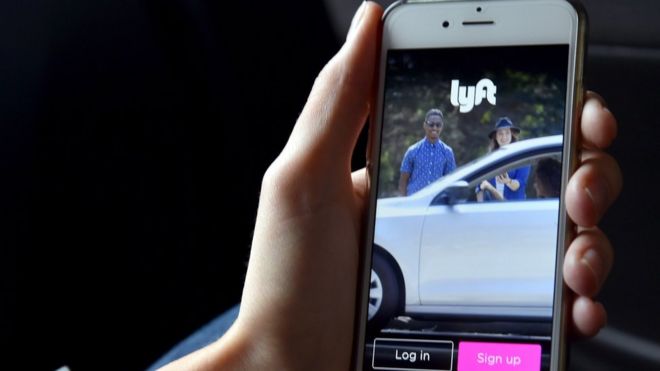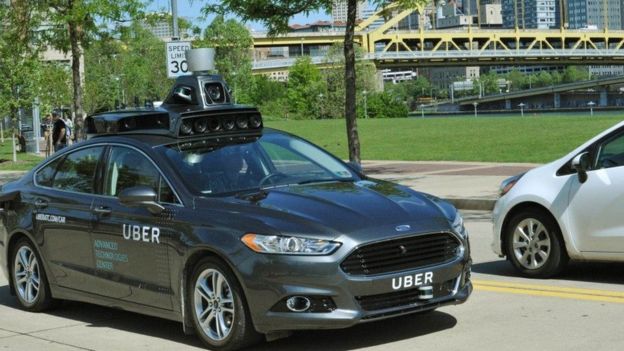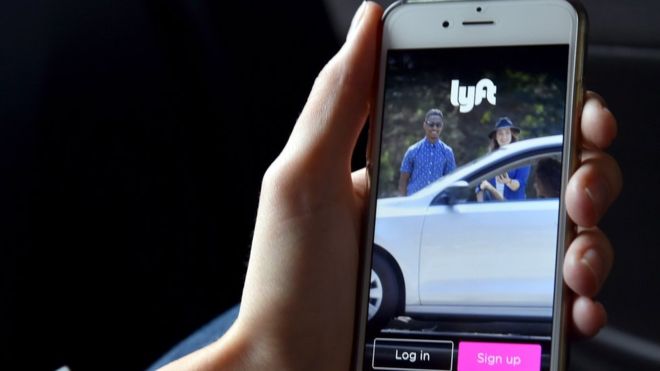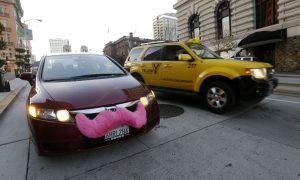
The majority of ride-hailing company Lyft's rides will be in self-driving cars within five years, the company's president has predicted.
Lyft co-founder John Zimmer said autonomous rides would eventually become a cheaper way to travel than owning your own car.
His comments come as car companies around the world are stepping up their experiments with self-driving cars.
Lyft has joined forces with GM while rival Uber has teamed up with Volvo.
Dubbing it the "third transport revolution", Mr Zimmer lays out three phases for future of driverless vehicles in the taxi and ride-sharing industry:
- In the first phase in two years' time, self-driving rides will be available to Lyft users but only along fixed routes with the software specifically geared towards those routes.
- For the next stage, he predicts cars will navigate any route but only at a maximum speed of 25 miles per hour.
- The third stage, which he says will kick in by about 2021, will see completely autonomous Lyft rides.
No more private cars
Once that final phase has begun, Mr Zimmer expects a sharp decline in private car ownership - at least in major US cities.
In January this year, Lyft struck a deal with US car company General Motors (GM) to develop a fleet of driverless vehicles and is testing these in San Francisco and Phoenix.

Main ride-hailing competitor Uber, which is working with car maker Volvo, started a trial with self-driving cars in Pittsburgh in August, albeit still with a backup driver who can take control should technology fail.
In Singapore, start-up nuTonomy launched a trial of autonomous taxis within a small area of town and on set routes only. The nuTonomy cabs also still have a driver as a back-up.
Aside from ride-hailing or taxi companies, carmakers are also working on autonomous driving technology.
Google has for years been working on its driverless Google car, also pushing US legislators to update the legal framework for a future of self-driving vehicles.
Click here to view original web page at www.bbc.com













